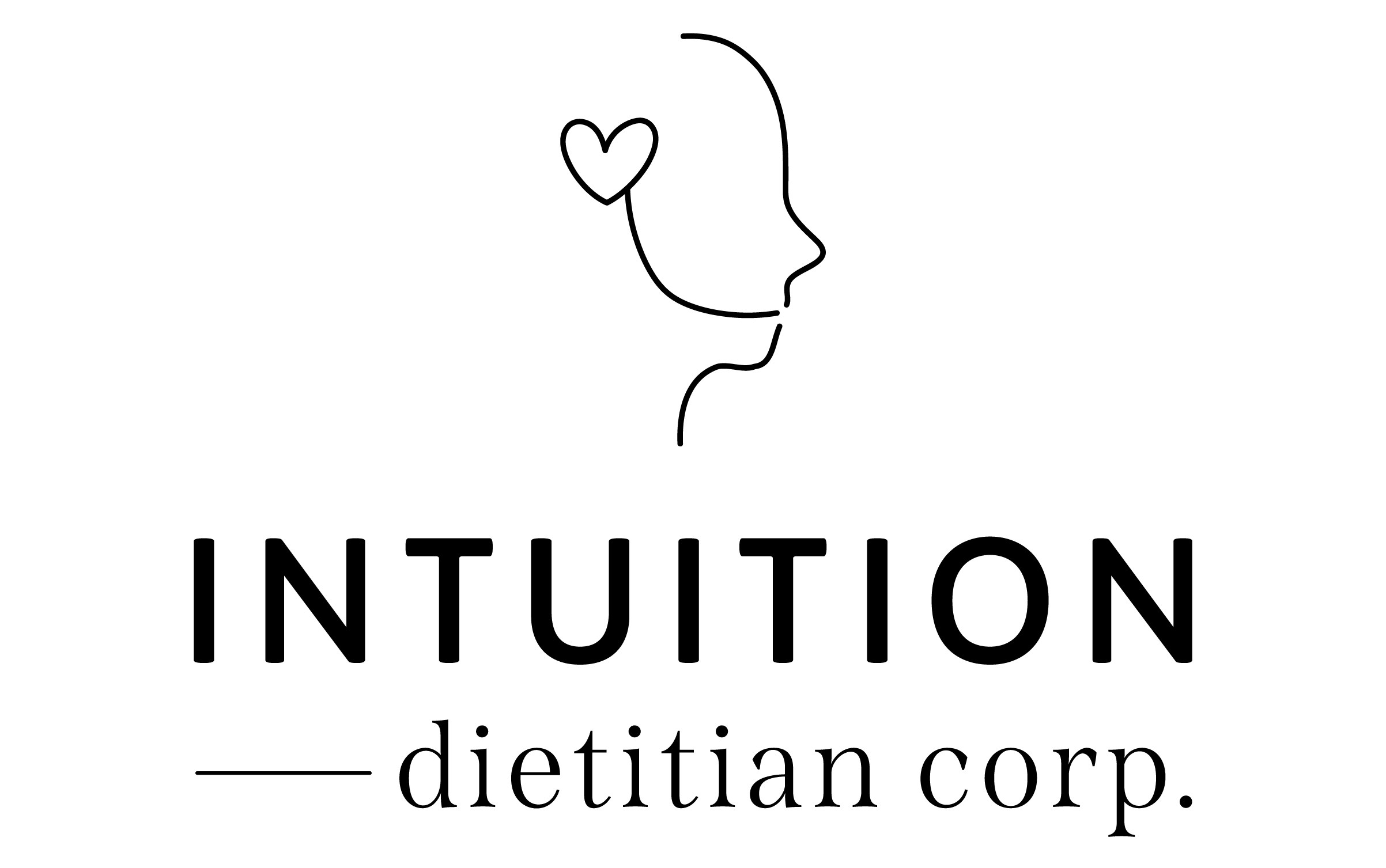February is a month of love. Love for yourself, your romantic partners, friends and family and maybe a fur baby or two. When it comes to love and relationships, I believe there is one that is often overlooked; our relationship with food.
Feelings about Food
In my practice, I find that food can be a source of guilt and shame for people. Often, these feelings can disrupt our relationship with food. Food guilt is saying “I ate something bad”. Food Shame is saying, “I am a bad person for eating this food”. I’d like to challenge this by suggesting that, what you decide to make for dinner does not define who you are. As a dietitian, I believe that all foods fit in a balanced diet and that it is important to include foods that feed your soul. These are foods that are chosen for taste and enjoyment, which is also important for overall health. Food nourishes our mind and body while providing a significant source of connection and pleasure in our lives.
As my favourite author, Brene Brown writes, “Shame corrodes the very part of us that believes we are capable of change”. When shame is at the table with us, we end up in a vicious cycle: eating, feeling shame, dwelling on it, being unmotivated to change how we feel when eating, and then eating food that we feel shameful about. I’d like to propose a way to break this cycle of food shame. So, how can we be kind to ourselves, and care for ourselves when it comes to food? I’d like to suggest starting by accepting that food is more than nutrition. Next, let’s work to break the cycle of shamed eating. I’d like to introduce you to the practice of intuitive eating.
Intuitive Eating
Intuitive eating has 10 principles. We won’t discuss all 10 today, but will start with the first three. 1 is rejecting the diet mentality. You are not a failure – the ideas you were led to believe about losing weight quickly have failed you. Second is honor your hunger – this means paying attention to your internal cues of hunger and fullness. It means learning to eat in moderation, but knowing that sometimes you’ll eat past fullness, and that’s ok. Third is making peace with food. Let’s take the fight out of food by removing the words “bad” or “forbidden” or “dirty” as adjectives for food. We want unconditional permission to eat.
Learning to eat intuitive begins with to tuning in and listening to your body and your thoughts. Next time you sit down to eat a meal or snack, pay close attention to that first bite. What does your food smell like? How does the first bite taste, and how does it compare to the next few bites? Think about how you feel as you eat your food.
When we become aware of the reasons behind the choices we make, we can work to prevent the unwanted feelings of guilt and shame that sometimes come with eating. Ask yourself: why do I feel bad about this food choice? What do I like about these foods?
Next Steps
I encourage you to explore other activities that bring comfort to our lives in addition to the foods we eat. Taking a hot bath with your favorite candle burning, yoga, meditation, a walk with a friend, spending time with your animals, reading a good book, or journaling. These, and enjoying good food with family and friends, are all ways to seek comfort, especially in these cold winter months.
Mastering mindful eating won’t happen overnight; it’s a process. This month, and every month moving forward, I want you to allow yourself to savor and enjoy the foods you like to eat. Savor every bite and reflect on the joy and happiness of sharing food with family or friends. Most importantly, give yourself permission to eat, and to eat enough of the foods that you enjoy. Each moment like this will help strengthen your relationship with food.
If you’re working on a better relationship with food, consider working with one of our registered dietitians and intuitive eating counsellors at Intuition Dietitian Corp. Our focus is on promoting a positive and guilt-free approach to eating, empowering you to enjoy a balanced and happy relationship with the foods that bring you comfort. With the help of our dietitians, you can improve your relationship with food, leading to lasting and positive changes in your overall well-being.
